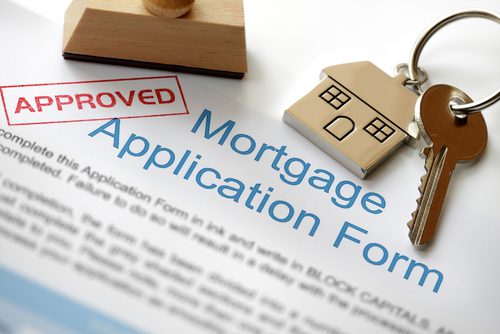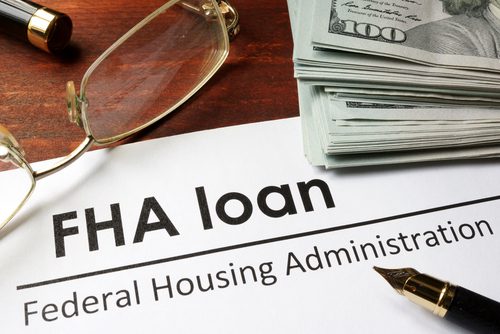Before you begin shopping for a home, you’ll need to look at mortgage loans. Everything you wanted to know about getting a home mortgage in Las Vegas is in this comprehensive guide or will guide you to more information.
[su_youtube_advanced url=”https://www.youtube.com/watch?v=Yi5z8iTK3aI” width=”1000″ height=”280″ showinfo=”no” rel=”no” https=”yes”]
[su_button url=”https://homes.ballenvegas.com/i/cta” target=”blank” background=”#0813ff” color=”#ffffff” size=”5″ wide=”yes”]Click to See Just Listed Homes with a Map![/su_button]
Mortgage Guide
Buying that new home is an exciting time and you will quickly find your time being spent perusing real estate listings, driving aimlessly through neighborhoods you have been coveting, and mentally imagine the drapes you would hang in the kitchen of that last duplex you visited.
It is a natural reaction, but it makes sense to discover just how much money your lender will be willing to loan you for that next dream home.
Your driving desires aside, lenders adopt a business-like approach to deciding the maximum loan amount that they are willing to extend to would-be house hunters. That being said, how do lenders determine the maximum loan amount?
Perhaps not surprisingly, they take a formulistic approach that focuses on your debt to credit ratio and your ability to repay the loan.
How do Lenders Determine the Maximum Loan Amount?
 To understand lending limits is to understand ratios. The lending industry uses several ratios when considering maximum loan amounts, so knowing these factors is the first step in planning for your meeting with loan officials.
To understand lending limits is to understand ratios. The lending industry uses several ratios when considering maximum loan amounts, so knowing these factors is the first step in planning for your meeting with loan officials.
The Front-End Ratio
When you write your monthly mortgage check you are actually paying on four aspects of that financial responsibility including interest, insurance, taxes, and principal.
The percentage of your gross annual salary that is dedicated to paying that mortgage is referred to as the front-edge ratio.
Under this rubric, the majority of house hunters can expect to afford between two to two and a half times their annual salaries.
As such, a buyer making $80,000 a year could conceivably expect a loan authorization of up to $200,000.
Industry best practices, however, suggest that the loan should not exceed 28% of the borrower’s gross yearly income.
Since existing debt burdens can hamper the ability to repay that amount, lenders also look at what is known as the back-end ratio or your debt to credit ratio.
[su_button url=”https://ballenvegas.com/las-vegas-house-value-estimator/” style=”flat” icon=”icon: money” desc=”Home Value” title=”Las Vegas Home Values”]Try the Home Mortgage Calculator[/su_button]
The Back-End Ratio
The back-end ratio determines what percentage of your income is used to cover your monthly debts. When making these calculations, loan officers include the cost of the mortgage, but they also evaluate your car payment, gym membership, credit card debts, childcare, and the like.
Indeed, all aspects of your monthly payments and responsibilities are placed under a microscope to determine whether adding the cost of a mortgage will swamp your finances.
Under these lending guidelines, the debt to income ratio should not exceed 36% of your gross income. For an estimate of your eligibility, simply multiply your gross income by 0.36 before dividing by twelve.
Neighborhoods with higher housing prices make it difficult to navigate within this 36% framework, some lenders will boost that ratio as high as 45% however, it is important to realize that that largess will lead to higher interest rates for the transaction.
Lowering your monthly obligations, in advance of beginning your house hunt is the best way to prepare for an improved debt to credit ratio.
[su_divider]
Your Mortgage Application Plan
 Are you thinking of applying for a mortgage? How far ahead do you think you should be planning? One year? Two?
Are you thinking of applying for a mortgage? How far ahead do you think you should be planning? One year? Two?
Get ready for this: you should ideally start planning your mortgage application seven years ahead.
Don’t worry if you are much closer to buying than that 7 year mark. Use these steps wherever you can.
If you’re hoping to buy your own house next year, don’t panic. Seven years is ideal, but not essential.
You may already have done most of the work that’s needed. But if owning your own home seems like a distant dream, you probably should be taking your first steps toward that dream right now.
There are two main reasons for that seven-year preparation period: savings and credit score. 2016 research by Equifax and What Mortgage found that nearly a third of first-time mortgage applicants had saved less than 5 percent of the price of the house, and couldn’t provide a deposit.
The rules on mortgages can seem complex, but one thing is clear and simple: no reputable financial provider will offer a 100 percent mortgage to a first-time buyer. If you don’t have a deposit, you won’t get a mortgage. Start saving now.
Work out a monthly budget that includes putting some money away, and stick to it. You don’t have to cut out every treat or never have a night out; you need to be able to stick to this for a few years, not just a few months.
 Next, start thinking about your credit rating. The most serious money problems can affect your credit score for up to seven years. Those include bankruptcy or insolvency, having debts passed on to collection agencies, or missing three monthly payments in a row.
Next, start thinking about your credit rating. The most serious money problems can affect your credit score for up to seven years. Those include bankruptcy or insolvency, having debts passed on to collection agencies, or missing three monthly payments in a row.
The amount you owe isn’t as important as the timeliness of your payments. If you owe a small amount on your credit card but don’t make a payment for 90 days, your mortgage application can be affected or delayed for years to come.
Check your credit score, and if it’s low, start to repair it right now.
Four or five years ahead of your mortgage application, take a look at your borrowing. How many credit or store cards do you have? How many loans do you have? Do you have an overdraft, and how often do you use it?
Mortgage lenders will look at your past borrowing. If you’ve rarely borrowed, they won’t have enough information to make a decision and will err on the side of caution. If you’ve never had a credit card or borrowed money, consider applying for one or two cards.
This doesn’t mean getting into debt, and you need to ignore any advertising from card companies telling you the maximum you can borrow. Stick to your budget, but pay with a credit card and then pay it off immediately.
[su_note]Considering a move to Las Vegas? You can browse Las Vegas homes for sale anytime. Save your favorites. Set up your criteria and we will email you when a house fits your needs. Call 702-604-7739 for a free consultation.[/su_note]
On the other hand, if you have dozens of credit or store cards, now is the time to think about consolidating them; you may end up paying less overall. If you do find yourself with some spare cash in the budget, consider making over-payments on loans.
If you have any loans that you’ll still be repaying when you want a mortgage, talk to your lender. Ask them how much you’d need to increase repayments in order to pay off the loan earlier. If you’re doing these several years before your mortgage application, the extra repayments aren’t likely to hurt too much.
Ideally, you would have loans paid off about six months before you want to borrow money for a place to live.
Over the next few years, you should review your budget every six months. Keep track of how your spending changes. In particular, look at how you spend on areas such as personal care and grooming, clothes, holidays, and nights out, and how well you manage big one-off items of expenditure and pay for emergencies.
If you can get into the habit of reviewing your spending, you can more easily identify areas where you can make savings, and you’ll be prepared for the detailed questions the lender will ask when you apply for a mortgage.
Try out the House Payment Calculator
A year before you apply for a mortgage, get a copy of your credit report. If it shows anything you think is inaccurate, now is the time to sort it out. A mortgage lender will base their decision on what your credit report says, not on your protestations that it’s wrong but is still uncorrected.
Check and correct the details about you that national and local governments hold, such as the address on your driver’s license or your registration to vote. All the information should match, so make sure any old contact details are updated.
Check out: What Credit Score is needed to buy a house
 During this final year, it’s important not to miss any payments on credit agreements. A single late payment won’t affect your credit rating, unless it’s recent, so make sure you pay on time from this point forward.
During this final year, it’s important not to miss any payments on credit agreements. A single late payment won’t affect your credit rating, unless it’s recent, so make sure you pay on time from this point forward.
Depending on the lender, paying a few days late may be recorded as a missed month, so keep up to date with everything. If you have direct debits, know when payments go out so you can ensure there’s enough money in your account to cover them.
Seven months before you want a mortgage, begin thinking carefully every time you use a debit card. Lenders may want to see six months’ worth of bank statements, and payees will be listed on there.
Try to imagine how your spending will look to someone who doesn’t know you. Mortgage providers compare your outgoings with statistics on how much an average person spends. If there is anything that appears on your statement that might cause a problem, deal with it now. Of course, if you’ve spent the last few years regularly reviewing your spending, this shouldn’t be a problem.
[su_note note_color=”#ffef66″]In the run-up to your mortgage application, search out the best deals. New products come on to the market all the time, so keep checking out comparison sites and best buy listings online. But remember that some online affordability calculators only take into account your current circumstances.[/su_note]
Lenders apply stress tests: they can ask you about your ability to make payments if interest rates increase, or if you start a family or lose your job. Ensure that you’ll be able to make repayments even if your circumstances change, or you might not get the mortgage offer you wanted.
Despite all the media attention paid to mortgage criteria and financial problems, many first-time borrowers are still ill-prepared for the application process. Taking the time to understand the requirements and get your finances healthy may make the difference between having your dream home and being stuck in a borrower’s nightmare.
[su_divider]
Choosing the Right Mortgage Lender
By the time you get the point where you are in need of a mortgage lender, you have done some research and understand the basics of a mortgage loan. This is one of the most important relationships you’re going to have during the process of buying a home. It’s important to choose the right mortgage lender when buying a home.
Talk to Other People
The best way to learn about reputable mortgage lenders is through word of mouth referrals. Check with friends and family members who’ve recently purchased a home or may have contacts in the real estate business.
Ask the business professionals with which you have contact.
Your attorney, your financial planner, or your accountant may have a mortgage lender they think of highly.
No matter how much you love Aunt Rose or trust your Attorney, don’t just accept their referrals at face value. Do your own legwork to find out if the lender fits your needs and is as reputable as they seem to be on the surface.
Make sure they talk in a way that helps you understand, without excessive use of words only those within the industry would understand.
What’s Your First Impression?
Once you have a small list of mortgage lenders to sort through, begin contacting them to ask questions. Make a note of how friendly they are when you speak to them. Do they return your calls within a reasonable timeframe? When you ask questions, take notice of their patience in answering them.
Make sure they are genuinely interested in you and your home buying experience. Trust your instincts. If you leave feeling like you’ve just been worked over by a pushy salesperson, trust those feelings and remove that lender from your list.
Check Their Reviews
Do the footwork and spend time researching the lender’s reputation. Check with places like the Better Business Bureau and the local Chamber of Commerce. Check Yelp to see if they have a business listing there with reviews. Yelp doesn’t allow removal of reviews, so you can get a realistic idea of how a company does business by reading the reviews listed there.
Check social media outlets like Facebook and Twitter to see what kind of presence they have and how they interact with other people. Check to see if they appear to be genuinely interested in their clients and their community.
Ask Questions about Loans
Make a list of questions you plan to ask each lender, and make sure you understand the answers they offer. Find out about their fees, how they get paid, loan details, and lock-in periods. Ask for a Good Faith Estimate.
Get the interest rates on the different loans each lender offers. Make yourself a chart to compare the interest rates and mortgage terms. Check to see who will be handling your loan once the application process is finished. If they plan to hand your account over to someone in another state but you prefer dealing with someone local, this is an important distinction.
While you’re checking your list of referrals, don’t forget to check your bank or credit union. Often, a credit union or bank will offer an incentive to their current clients when it comes to mortgage loans. This isn’t always the case, but if you already have an account in good standing with your financial institution, this is an option worth checking.
Narrow Down Your List
As you begin to compare the answers each lender has supplied for your questions, remove lenders who just don’t make a good match for your home buying needs. Remove them if they weren’t prompt, or if they left out important information you requested.
Once you’ve chosen the mortgage lender you would like to work with, you can begin taking a closer look at loan types and choosing the best one that works with your real estate needs.
[su_divider]
Federal Housing Administration, Top Ten Facts about FHA Loans
 The FHA loan is a popular option for borrowers because it allows them to buy a home with a relatively small down payment. It is also one of the most misunderstood loan products in the market.
The FHA loan is a popular option for borrowers because it allows them to buy a home with a relatively small down payment. It is also one of the most misunderstood loan products in the market.
In this article we get to the bottom of how FHA mortgages work, and bust some of the common misconceptions about this flexible loan product.
FACT 1: The FHA is NOT a mortgage lender
The Federal Housing Administration (FHA) a government agency within the U.S. Department of Housing and Urban Development, mandated to promote home ownership. Contrary to popular belief, the FHA is not a mortgage lender. It does not make mortgage loans to home buyers.
Rather, the FHA is a mortgage insurer. It reimburses banks and other mortgage lenders for their losses in the event that their FHA-insured loan goes into default. Because of the government guarantee, banks and other mortgage lenders are willing to lend money to borrowers who might not qualify for a traditional mortgage.
FACT 2: FHA loans are NOT just for first-time buyers
The FHA loan is often touted as a mortgage for first-time buyers because of its low credit score and down payment requirements. In truth, anyone can apply for an FHA loan, as long as the loan is for the borrower’s primary residence.
FACT 3: FHA loans typically require just a 3.5 percent down payment
While most traditional mortgages require a 20 percent down payment, the FHA requires just 3.5 percent down. And, unlike other low or zero down payment mortgages such as those from the U.S. Department of Veterans Affairs, there are no eligibility requirements attached to the loan. This makes the FHA mortgage one of the most lenient mortgage types available in the U.S.
FACT 4: The cash down payment can come from any source
The down payment can come from any legitimate source. This means that parents, siblings, employers, charitable organizations or government homebuyer programs can finance the down payment. What’s more, the seller can pay up to 6 percent of the loan amount towards the buyer’s closing costs, compared to just 3 percent for conventional loans. These concessions allow buyers with zero cash savings to fulfill their dream of homeownership.
FACT 5: Lenders can approve FHA borrowers with poor credit scores
Not everyone will qualify for an FHA-backed loan. Borrowers have to show that they have a steady income and can reasonably afford to repay the loan. However, borrowers with a poor or nonexistent credit score stand a better chance of qualifying for an FHA loan than any other mortgage type.
The reason? FHA mortgage providers are expressly instructed to analyze the borrower’s complete credit profile and not just isolated instances of default here and there. Even borrowers who have suffered a catastrophic credit event, such as a bankruptcy or foreclosure, will find it easier to get an FHA mortgage than a mortgage that does not come with the government guarantee.
The waiting period is typically just two or three years.
FACT 6: Some lenders set stricter standards
Because the FHA does not advance the loan, the mortgage lender can choose to apply stricter underwriting criteria than the standards set by the FHA. “Investor overlays,” as these standards are known, might include raising the minimum credit score or requiring additional time since a foreclosure, short sale or bankruptcy. A borrower who is disqualified by one FHA-approved lender might have better luck with another.
FACT 7: FHA loans may be more expensive, or less expensive, than other types of mortgage
Since 2011, FHA interest rates have been lower than comparable conventional rates via Freddie Mac and Fannie Mae. But it is not the rate that determines how expensive a mortgage is. The true cost of the product depends on the loan size, the mortgage term, the down payment and the property’s location.
The biggest cost of FHA-backed loan is mortgage insurance. Borrowers taking out an FHA mortgage are required to pay mortgage insurance premiums – this is non-negotiable, unless the borrower puts down more than 20 percent. MIPs are paid into a pot of cash that the FHA uses to compensate lenders against mortgage default without cost to the U.S. taxpayer. Ultimately, MIPs keep the FHA scheme running.
MIPs are paid in two parts. An upfront MIP of 1.75 percent of the loan size is automatically added to the loan balance at closing. In addition, borrowers pay an annual MIP in monthly installments along with the mortgage payment. For most borrowers, the annual mortgage interest payment is between 0.45 and 1.35 percent, though it can be higher, depending on the property’s location.
MIPs can add significantly to the cost of an FHA loan.As always, borrowers should compare offers from several different lenders – conventional as well as FHA loans – before committing to buy.
FACT 8: Homeowners “armed with knowledge” get a MIP reduction
Evidence suggests that homeowners who undertake counseling are 30 percent less likely to default. Thus, first-time buyers who agree to attend homeownership education classes through the FHA’s “Homeowner’s Armed With Knowledge” (HAWK) program are granted reduced upfront and annual MIP payments. Counseling lasts a minimum of six hours and is conducted before the buyer goes into contract.
FACT 9: There are limits on how much you can borrow
Limits vary by region, and the amounts are not as modest as you might think. In some counties, FHA loans are available for properties priced at over $1 million.
FACT 10: FHA loans are assumable
In general, a buyer can take over the seller’s FHA loan. In other words, the buyer will pick up the seller’s rate, repayment period, principal balance and other terms. Often, the terms of the seller’s mortgage are more favorable than the terms the buyer would be offered if he were to take out a loan at today’s rates.
When interest rates are rising, the ability to assume an existing loan may make the house more attractive to buyers and easier to sell.
[su_divider]
You might also like to learn about: Down Payment Options
How to Get The Best Mortgage Rates: Top 6 Criteria to Qualify
The media is rife with advertisements telling you that unbelievably low mortgage interest rates are in the palm of your hands. Unfortunately, in many cases, borrowers find out that they only qualify for interest rates that are one to two percentage points higher than the average rate. So, what gives?
Basically, lenders see the mortgage interest rate as a representation of the risk involved in lending money to borrowers. A lower risk translates into favorable interest rates. You may ask then: How can I be a low-risk mortgage applicant? Lenders generally use certain criteria to determine if you qualify for an ultimately low interest rate.
Explained below are some of the major determinants that lenders typically consider when deciding whether to give you attractive mortgage rates.
A Credit Score of 760 or Higher
 Lenders want to know if you’re capable of paying back the money you intend to borrow. A high credit score is a good indication that you’re a trustworthy payer. In contrast, if your credit score is low, it means you likely have a history of late and missed payments or other undesirable financial faults.
Lenders want to know if you’re capable of paying back the money you intend to borrow. A high credit score is a good indication that you’re a trustworthy payer. In contrast, if your credit score is low, it means you likely have a history of late and missed payments or other undesirable financial faults.
A low score may indicate that you’re not quite responsible in managing your finances, making you a high-risk applicant in the eyes of lenders.
In a nutshell, the higher your credit score, the better the interest rates you’ll get. To access the most competitive rates, your credit score shouldn’t fall below 760, which is considered a good score especially if you’re planning to take out a 30-year mortgage. A credit score of 760 or higher opens the door to the most coveted mortgage rates and considerably lower down payments, as it implies that you have an excellent credit history and you have extremely low chances of becoming delinquent in your loans.
Generally, the minimum score to have your mortgage application approved is 620, although having this score means you’ll likely end up paying much more for the debt you owe. However, those with very low credit scores ranging from 500 to 579 can still qualify for a mortgage by getting Federal Housing Administration-insured loans, which require a minimum of 10 percent down payment. Those with credit scores of at least 580 can get FHA-insured loans with as low as 3.5 percent down payment.
You might Also Like: Old Las Vegas Homes For Sale
A Debt-to-Income Ratio of 40 Percent or Lower
Debt-to-income ratio refers to the portion of your gross monthly income that goes to debt payments, and you calculate it by dividing your debt amount by your total income. For example, if your gross income is $8,000 monthly and you have a total debt of $1,500 each month, your debt-to-income ratio would be around 0.19 percent.
A low debt-to-income ratio means lower mortgage interest rates. The ideal percentage to qualify for a new loan is no higher than 40 percent. Lenders take a look at your debt-to-income ratio when considering to grant your loan application, because they want to know if the new loan is within your means and it’s not too hard for you to pay it off. They want to be assured that you’re capable of making prompt payments consistently despite pay cuts, additional debts and other financial setbacks.
What do lenders consider as debt exactly? Generally, anything that’s stated on your credit report can be seen as debt, including personal loans, credit card debts and auto loan debts. Future mortgage payments also are usually taken into account.
A Stable Job
Lenders want to check if you have a stable and consistent career, because a stable job means better capability of paying off a loan for long-term. A long-standing career indicates stability and bolsters your chances of getting the best mortgage rates. That said, don’t panic if you changed jobs before. The important factor is that your previous jobs and current work are in the same industry.
Ideally, you should have a job in the same industry for at least two years. On the other hand, being unemployed or having been fired in the recent years won’t help you get favorable rates, so remember to keep your job for as long as you can to secure excellent mortgage rates in the future.
An Equity Equal to 20 Percent or More
 From a lender’s perspective, having more equity means a lower risk. In a real estate context, equity refers to your home’s market value after deducting your remaining mortgage balance.
From a lender’s perspective, having more equity means a lower risk. In a real estate context, equity refers to your home’s market value after deducting your remaining mortgage balance.
For example, if your home value is worth $600,000 and you have a remaining mortgage balance of $500,000, then you have a 17 percent home equity. Basically, this means you own 17 percent of your home property, and the lender owns 83 percent of it.
How does equity represent risk? If the value of your home decreases by up to 17 percent, you’d incur loss if you decide to sell your property, and you’ll have to come up with enough cash from other sources to repay your debts upon selling your home.
And if your home’s value declines by 18 percent or more, the lender could possibly lose money considering that the lender owns the rest of your home. Thus, a lower equity means a higher risk for the lender.
Lenders don’t like losing money, and they want to provide loans if there’s a good guarantee that the loans would bring in some profit rather than losses. To get the most favorable mortgage interest rates, you should maintain a minimum of 20 percent equity in your property and strive to maximize it, whether by paying off your mortgage balance or renovating your home to raise its market value.
Sufficient Cash Reserves
 When you have ample money in your savings or checking account, certificates of deposit, or money market funds, lenders will feel more confident that you have the financial backing to continue your monthly house payments even if sudden expenses affect your cash flow.
When you have ample money in your savings or checking account, certificates of deposit, or money market funds, lenders will feel more confident that you have the financial backing to continue your monthly house payments even if sudden expenses affect your cash flow.
Most lenders require cash reserves that cover at least two months’ worth of house payments, although the requirement may be higher if you’re considered a high-risk applicant.
A Down Payment of At Least 20 Percent of the Purchase Price
To get the most enticing mortgage rates, you’ll have to save up for a down payment of at least 20 percent of your property’s purchase price. Also, this amount of down payment helps you make substantial savings because it eliminates the need to pay for private mortgage insurance.
Shopping for the Best Mortgage Rates
After determining where you stand in terms of qualifying for competitive mortgage rates, your next step is to shop around. Check out reputable online sources to compare the rates offered by various lenders. Many sites feature tools that let you enter details about your desired mortgage and automatically provide a list of the most attractive rates.
You may also want to visit your local bank or credit union, as you may have higher chances of bagging low rates and discounts, particularly if you’ve established a good relationship with them over the years.
Popular: How Much can You Afford to Pay Monthly when Buying a New House
Best Fixed Mortgage Rates Available by Positioning Yourself as a Low-Risk Applicant
To gain the trust of mortgage lenders and enjoy a selection of low-interest rates, it’s important to maintain a good credit score, avoid switching jobs frequently, obtain a higher equity, and save up as much and as often as you can.
Try to monitor your credit score regularly and control your spending. It’s wise to create a fail-safe plan for sudden expenses and unforeseen situations by building an emergency fund.
Mortgage lenders prefer that you keep a good amount of savings instead of using it all up on the down payment, so you won’t have to miss payments even if something unexpected comes up. Evaluate your cash flow, existing debts and monthly expenses carefully, and make sure to borrow only what you can afford to pay off. The rule of thumb is that all of your monthly debts should be no higher than 36 percent of your total income pretax.
Make sure to manage your finances wisely from the time you take out a loan until closing on it, as your lender will likely review your credit report to check if there’s any significant change in your credit score and history. Maxing out your cards and getting another loan may just derail your mortgage closing. Knowing the major criteria lenders use to determine the appropriate mortgage rates for loan applicants, it’s best that you take action immediately and address anything that hampers you from being a well-qualified, low-risk applicant, whether it’s about your credit score, amount of debts, cash reserves or total equity.
[su_divider]
Mortgage Questions: Can Your Relationship Hurt Your Chances?
Buying a new home is one of the biggest commitments that you can make in life. It’s probably going to be your biggest purchase and you’ll probably spend the next 15 to 30 years paying off the mortgage you took out. If you are buying a new home with your partner, then you are making an even bigger commitment.
However, you might find that buying a home with your partner might be more difficult than you thought. You might think that having two incomes can only benefit you, especially in the process of applying for a mortgage, but there are a number of things that could hold you back as well. Here are a few potential concerns for couples looking to buy a home together:
You just got married
Although it varies from state to state, most of the time you’ll find that real estate is considered to be marital property. This means that the name that appears on the deed and the mortgage is very important. Joint ownership is a good idea, as it helps to provide extra stability if a tragedy occurs to either you or your spouse.
However, things can get tricky if you’re the one that paid for the real estate and both of your names appear on the deed, if you happen to go through a divorce in the future. While this is not a pleasant thing to think about, it’s something you should consider when determining whether both names should appear on the deed and mortgage.
You or your partner has bad credit
It doesn’t matter if one of you has absolutely incredible credit; if the other has poor credit, then it could hurt your chances of qualifying for a mortgage or getting the mortgage terms that you want. This is because the mortgage lender will use the lower of the two credit scores.
The lender may still offer you a loan if one of your credit scores is bad, but it will most likely be a smaller loan with higher interest rates. You should sit down with your partner to look over both of your credit reports before applying for a mortgage.
If one of you has poor credit, then you have three options:
- Hope that you qualify for a smaller loan with high-interest rates
- Work on improving your credit scores before applying for a mortgage
- Leave the person with the bad credit off the mortgage application
Leaving the person with the bad credit off the mortgage application is a risky move, especially if you’re not married. If you leave each other or get a divorce, then the person not on the mortgage isn’t legally obligated to help with payments.
You or your partner doesn’t meet the income requirements
Mortgage lenders will review the applicant’s last two years of W-2s and tax returns. If either of you is working as an independent consultant or has just started a business, you’ll need to be able to prove that you have had steady income throughout those last two years to qualify for the loan.
If one of you can’t prove that you have had steady income over the past two years, then your income probably won’t qualify for the mortgage.
You or your partner’s expenses and debt are too high
In order to qualify for a mortgage, you’ll need to be able to prove that you can afford the monthly payments. Lenders will take a close look at your debt-to-income ratio, which they will determine by checking your income as well as the items on your credit report.
You’ll typically need to have a qualifying ratio that’s less than or equal to 43 percent. If either debt-to-income ratio is higher than that, you may not qualify.
You should sit down with your partner when you first figure out your budget to determine what your debt-to-income ratio is. If either of your expenses or debts are too high, you may want to hold off on applying for a mortgage until you can pay down your debts a little more.
If you are planning on buying a home with your partner, then you need to be aware that both you and your partner’s financial situations will be taken into account by lenders, and that the risk is usually determined by the person with the worse financial background. Because of this, getting your finances straightened out before you apply for a mortgage is a smart idea.
[su_divider]